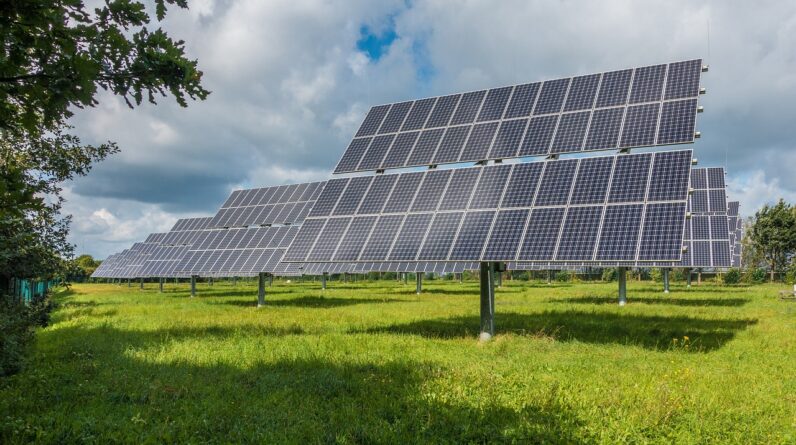
Discover how solar power is transforming emerging economies by boosting energy access, driving economic growth, and fostering sustainability for a cleaner future.
Have you ever thought about how renewable energy, especially solar power, is changing the landscape of energy production in emerging economies? The shift toward sustainable energy sources is not just a trend but a necessity, driven by innovation, investment, and the pressing need to reduce carbon footprints.

Understanding Solar Power
Solar power harnesses energy from the sun and converts it into electricity or thermal energy. It relies on photovoltaic cells, solar panels, or concentrating solar power systems to capture sunlight. Given its abundance and availability, solar energy has gained traction as a reliable and sustainable energy source.
Why Solar Power?
Solar power offers numerous advantages over traditional fossil fuels. It’s renewable, reduces greenhouse gas emissions, and can significantly decrease dependence on imported fuels. In emerging economies, these benefits are particularly crucial as they seek to balance economic growth with environmental sustainability.
The Context of Emerging Economies
Emerging economies typically refer to nations that are experiencing rapid growth and industrialization but still face significant challenges related to economic development. These countries often struggle with energy access, infrastructure, and environmental concerns.
Energy Accessibility
Many emerging economies have populations with limited access to electricity. This lack of energy accessibility hampers development in education, health, and economic growth. Solar power provides a viable solution to address these energy gaps, particularly in rural and isolated areas.
Economic Growth
As these economies develop, their energy consumption is rising. Investing in solar power can help meet this growing demand while ensuring that development remains sustainable. Furthermore, clean energy sectors create jobs, which contribute to economic stability and growth.
Adoption of Solar Power in Emerging Economies
Solar power is becoming a preferred choice for many emerging economies. Let’s explore some key factors contributing to this rise.
Decreasing Costs
Over the past decade, the cost of solar technology has plummeted. This significant reduction makes solar installations more feasible for developing regions. You can appreciate that this price drop is due to advancements in technology and increased production capacities worldwide.
Cost Comparison
| Year | Average Cost of Solar ($/W) |
|---|---|
| 2010 | 3.00 |
| 2015 | 0.80 |
| 2020 | 0.20 |
This table shows you the dramatic reductions in the cost of solar power generation over the years. As you can see, solar power is becoming more accessible over time.
International Investment
There’s a surge in international investments aimed at promoting renewable energy in emerging markets. Governments and private investors are recognizing the long-term benefits of funding solar projects. This financial backing is vital for infrastructure development and technology deployment.
Technological Advancements
Innovations, like improved solar panel efficiency and storage solutions, play an essential role in the successful implementation of solar power. With advancements that allow for better energy capture and storage, solar energy’s reliability as a power source continues to improve.
Case Studies: Solar Power Success Stories
Investor interest and proactive government policies have contributed to several success stories in countries embracing solar power.
India: A Leader in Solar Energy
India has made impressive strides in solar energy deployment. With ambitious solar energy targets, India aims to generate 100 GW by 2022. The Solar India initiative focuses on promoting solar power through incentives and state-led projects.
Key Initiatives
- National Solar Mission: Launched to increase solar power use and enhance energy security.
- Rooftop Solar Policy: Encouraging homeowners and businesses to install solar panels, benefiting from net-metering policies.
South Africa: Expanding Solar Projects
In South Africa, renewable energy projects have gained momentum through the Renewable Energy Independent Power Producer Procurement Programme (REIPPPP). This program has attracted significant investment into solar photovoltaic projects across the country.
Achievements
- Capacity Addition: Over 500 MW of solar PV capacity has been installed under this program.
- Job Creation: Thousands of jobs have been created in the construction, operation, and maintenance of solar plants.

Benefits of Solar Power in Emerging Economies
You might wonder how solar power specifically benefits these economies beyond energy production. Let’s analyze the broader impacts.
Environmental Impact
Solar power significantly reduces greenhouse gas emissions, contributing to improved air quality. Emerging economies face environmental challenges, and reliance on solar energy can mitigate many of these issues, creating healthier living conditions for people.
Energy Independence
Solar energy enables countries to lessen their reliance on imported fossil fuels. However, energy independence is vital for national security, economic stability, and self-sufficiency. By investing in solar power, you support a transition to energy independence.
Social Benefits
For communities, solar energy can revolutionize access to power. Imagine how small-scale solar installations can strengthen local economies, enhance education systems, and improve healthcare facilities through reliable energy supply.
Challenges Facing Solar Power Expansion
While the potential is enormous, there are challenges that emerging economies must navigate. Understanding these obstacles can give you insight into the road ahead.
Initial Investment Costs
Even with decreasing costs, the initial investment for solar infrastructure can be significant. In emerging economies where funding is limited, gathering financial resources may be challenging. Creative financing solutions are crucial in mitigating this barrier.
Grid Infrastructure
In many regions, existing grid infrastructure may not be equipped to handle the influx of solar energy. Developing a smart grid that can manage variable renewable energy efficiently is necessary for long-term sustainability.
Policy and Regulatory Issues
Government policies play a pivotal role in shaping the solar market. Inconsistent policies, lack of incentives, and regulatory hurdles can stall progress. Ensuring supportive and stable frameworks is vital for encouraging investment.

The Future of Solar Power in Emerging Economies
You might be curious about what lies ahead for solar energy in these regions. The outlook is encouraging, with several trends pointing toward a bright future.
Increasing Government Commitment
As awareness of renewable energy benefits grows, more governments in emerging economies are committing to solar energy. This commitment leads to stronger regulatory frameworks and investment incentives.
Community-Based Initiatives
Community-driven solar projects are increasingly becoming popular, enabling local populations to control their energy resources. This grassroots approach fosters sustainability and empowers citizens, creating a sense of ownership.
Collaboration and Partnerships
Collaboration between governments, nonprofits, and private sectors can drive solar energy further. Strategic partnerships can mobilize resources and expertise, facilitating smoother transitions to renewable energy.
Conclusion
In summary, the rise of solar power in emerging economies reflects an evolving global landscape. As emerging markets invest in renewable energy, you witness a powerful transformation that addresses energy poverty, fosters economic growth, and contributes to environmental sustainability.
Whether it’s through innovative policies, successful community initiatives, or global cooperation, solar power is proving to be a beacon of hope for many regions striving for a brighter, cleaner, and more sustainable future. By embracing solar energy, emerging economies can illuminate their paths toward development while protecting the planet for generations to come.






